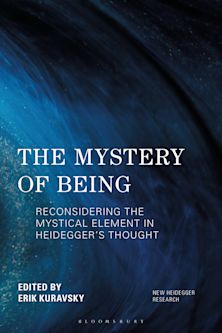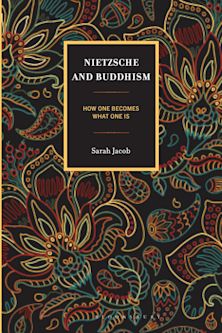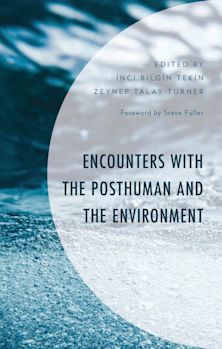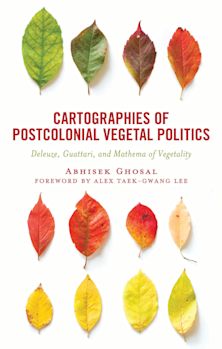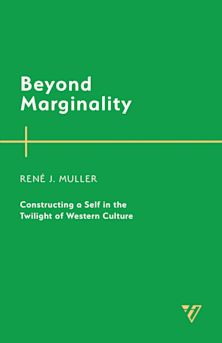- Home
- ACADEMIC
- Philosophy
- Philosophy - Other
- New Critical Theory
This product is usually dispatched within 3 days
- Delivery and returns info
-
Free CA delivery on orders $40 or over
You must sign in to add this item to your wishlist. Please sign in or create an account
Description
New Critical Theory surveys contemporary leftist thought while introducing the tenets of this new form of critical theory. Beginning with an exploration of the relationship between Marxism, Habermas, and the politics of identity, William S. Wilkerson and Jeffrey R. Paris present a collection that critiques the globalization of capital. The development of personality appears as subject to socialized standards in an age of global capitalism. Only after scrutinizing the effects of such a system can liberation be found. The essays within join Critical Theory with postmodern insights on language and subjectivity to provide a more comprehensive view of emancipatory social theory. Through this and other refelctions on critical race, gender, and queer theories, Wilkerson and Paris emerge with an encompassing volume defining New Critical Theory.
Table of Contents
Chapter 2 Introduction: Why a New Critical Theory?
Part 3 Visions and Methods
Chapter 4 Obstinate Critique and the Possibility of the Future
Chapter 5 Redemption in the Impasse: An Other Communism
Chapter 6 Toward a New Critical Theory
Chapter 7 Inhabiting Hope: Contributions to a New Materialist Phenomenology
Part 8 Intersections beyond Postmodernism
Chapter 9 Marcuse and the Quest for Radical Subjectivity
Chapter 10 Challenging the Colonial Contract: The Zapatistas Insurgent Imagination
Part 11 Critique of Technology
Chapter 12 Marcuse and the Aestheticization of Technology
Chapter 13 Women Carrying Water: At the Crossroads of Technology and Critical Theory
Chapter 14 Chronotopology: Critique of Spatiotemporal Regimes
Part 15 Race, Sexuality, and the Normative Foundations of Criticism
Chapter 16 Can Queer Theory Be Critical Theory?
Chapter 17 The Mother Wit of Justice: Eros and Hubris in the African-American Context
Chapter 18 Imagining the Horizon
Part 19 Index
Product details
| Published | Nov 19 2001 |
|---|---|
| Format | Paperback |
| Edition | 1st |
| Extent | 288 |
| ISBN | 9780742512788 |
| Imprint | Rowman & Littlefield Publishers |
| Dimensions | 226 x 150 mm |
| Series | New Critical Theory |
| Publisher | Bloomsbury Publishing |
About the contributors
Reviews
-
This collection brings together some of the most exciting voices writing in critical theory today. The essays included in the volume show us how critical theory can be expanded to include the burning issues of multiculturalism; racial, ethnic, and language politics; and the pressing demands of feminism.
Drucilla Cornell, Rutgers University, author of Today's Struggles, Tomorrow's Revolutions
-
In this collection, Wilkerson and Paris have brought together seasoned veterans of critical theory such as Douglas Kellner, Andrew Feenberg, and James L. Marsh with a new generation of critical theorists including Patricia Huntington, Eduardo Mendieta, Bill Martin, and Cynthia Willett. Although there is no single perspective that unites the authors across topics ranging as widely as the Chiapas Rebellion, queer theory, African-Amercian notions of 'subjectivity,' and Marcuse's early debts to Heidegger, what they share in common is the attempt to renew the critical, radical edge of what we might think of as a 'critical theory industry' dominated by Habermasians. A new, post-Habermasian critical theory finds greater inspiration in the radicalism of HerbertMarcuse than in the critical-theoretic rapprochement with liberalism that has characterized its mainstream development in the United States over the past couple of decades. Anyone interested in answering the question Nancy Fraser once asked, 'What's Critical About Critical Theory?,' will be informed and challenged by this volume. The critical theory that appears here is especially noteworthy for its willingness to learn from and engage in constructive dialogues with postmodernism, feminism, postcolonial t
Thomas Jeannot, Gonzaga University
-
An important, philosophically sophisticated book that ought to be read by anyone who has felt the pull of philosophical dissonance. It is a book that ought to be read by all those who are intellectually accustomed to reading the works of those who continue to testify against continuing injustice. It is also a book that demands to be read by all of those frustrated by the futile in-fighting that has dogged Critical theory for several decades. This book has the potential for cunstructing new bridges both between the various clans that comprise Critical theory and across to other intellectual traditions that have been unduly neglected by an overly canonical reading of Critical theory.
Andrew Fagan, University of Essex
-
New Critical Theory is an important, philosophically sophisticated book that ought to be read by anyone who has felt the pull of philosophical dissonance. It is a book that ought to be read by all those who are intellectually accustomed to reading the works of those who continue to testify against continuing injustice. It is also a book that demands to be read by all of those frustrated by the futile in-fighting that has dogged Critical theory for several decades. This book has the potential for constructing new bridges both between the various clans that comprise Critical theory and across to other intellectual traditions that have been unduly neglected by and overly canonical reading of Critical theory.
Philosophy in Review
-
One is unlikely to encounter an anthology on recent applications of critical theory that is as thorough in its coverage as this one. The editors have done a terrific job assembling an all-star cast of scholars; the writing is impassioned and the territory covered-from philosophical foundations and postmodern challenges to globalization, technology, post-colonialism, race, gender, and sexual orientation-is fresh and exciting.
David Ingram, Loyola University, Chicago
-
In this collection, Wilkerson and Paris have brought together seasoned veterans of critical theory such as Douglas Kellner, Andrew Feenberg, and James L. Marsh with a new generation of critical theorists including Patricia Huntington, Eduardo Mendieta, Bill Martin, and Cynthia Willett. Although there is no single perspective that unites the authors across topics ranging as widely as the Chiapas Rebellion, queer theory, African-Amercian notions of 'subjectivity,' and Marcuse's early debts to Heidegger, what they share in common is the attempt to renew the critical, radical edge of what we might think of as a 'critical theory industry' dominated by Habermasians. A new, post-Habermasian critical theory finds greater inspiration in the radicalism of Herbert Marcuse than in the critical-theoretic rapprochement with liberalism that has characterized its mainstream development in the United States over the past couple of decades. Anyone interested in answering the question Nancy Fraser once asked, 'What's Critical About Critical Theory?,' will be informed and challenged by this volume. The critical theory that appears here is especially noteworthy for its willingness to learn from and engage in constructive dialogues with postmodernism, feminism, postcolonial theory, and multiculturalism, moving its readers beyond the increasingly sterile debates that dominate the ivory tower, to the concrete, world-historical struggles for liberation on which the soul, the vitality, and ultimately the future of critical theory depends.
Thomas Jeannot, Gonzaga University
















